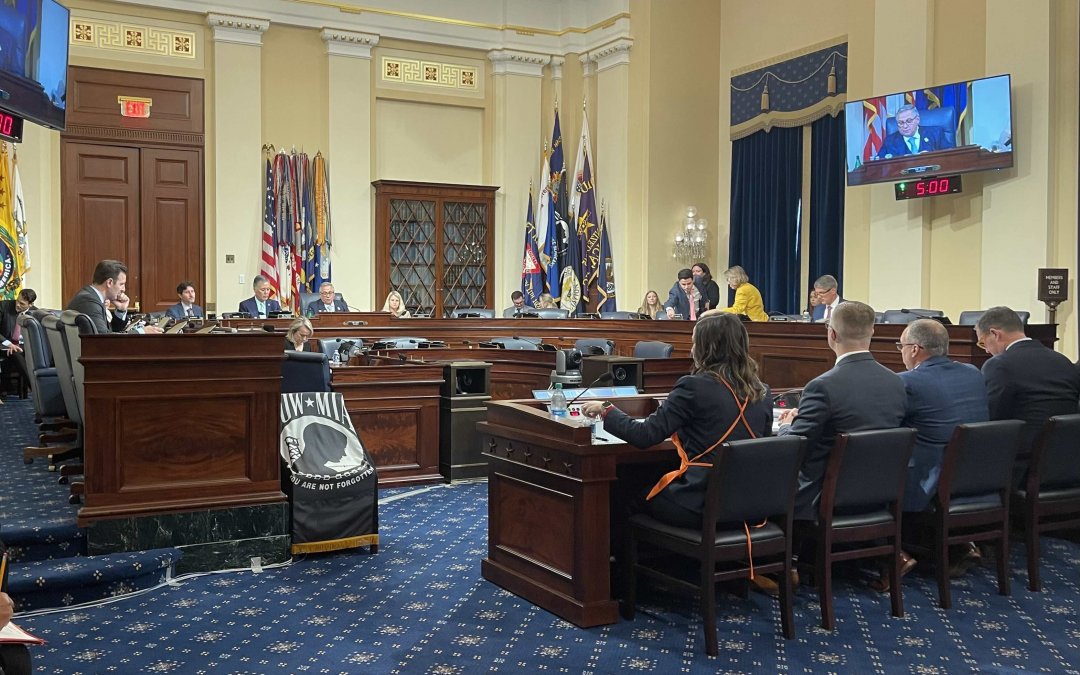WASHINGTON — Military veterans who owned small businesses told policymakers on Tuesday that shortcomings in government efforts to aid those transitioning out of the military are making it more difficult for service members to build their own businesses after leaving active duty.
At Tuesday’s House Veterans’ Affairs hearing, veteran Chris Maynor said information was not readily available through the Transition Assistance Program (TAP) when he was trying to build his own business, a men’s clothing store in rural Illinois. He had trouble locating grants through TAP specifically for veterans starting businesses and had to incur debt instead to start the store, he added.
“For a veteran that was fighting PTSD and TBI, it shouldn’t be so hard to look for veteran benefits,” Maynor said. “I believe that we need to come up with a way to help our veterans, especially in small communities.”
Relief could come in the form of increasing Veteran Service Officer’s interactions with those transitioning out of the military, he said. Additionally, Maynor added that a “user-friendly website” that compiles information related to benefits, job applications, grants and funding for veterans could be beneficial.
Joe Gelardi, president and CEO of the systems analysis company Vectrona, cited his own experience with TAP during his transition out of the military as “wholly inadequate.” He said the networks that veterans build while on active duty are not necessarily helpful in finding a career outside of the military.
“The transition programs often miss the mark because information and assistance often come too late in the process,” Gelardi said. “Training is often out of touch with current private sector business practices.”
Beyond discussing TAP, Gelardi also referenced specific economic policies that he said have harmed his business’ growth, like the Tax Cuts and Jobs Act. He said the legislation, which became effective in January 2018, limits the ability of veteran-owned businesses to innovate by not allowing immediate deductions based on research and experimentation expenses.
Prior to hearing from Gelardi and Maynor, representatives from major U.S. corporations — including Walmart, Verizon and Home Depot — also testified before members of Congress, touting their respective business practices’ role in reducing veteran unemployment rates.
According to the U.S. Bureau of Labor Statistics, the unemployment rate for veterans was 2.8% in 2022, a decrease of 1.6% from the previous year and a 4.2% drop from 2012.
Unemployment rates for military spouses, however, remain high. A 2022 survey commissioned by Hiring Our Heroes found that the unemployment rate for military spouses was 22% and had seen little change since 2012.
Eric Eversole, president of Hiring Our Heroes and a vice president of the U.S. Chamber of Commerce, said the Defense Department’s recently enacted Military Spouse Career Accelerator Pilot program could be a step in the right direction. The program, which launched in January, provides military spouses with a paid fellowship at employers from various companies.
But, there is still work to do, he said.
“The availability of military spouses to find and maintain careers is forcing too many military families to live through a single source of income,” Eversole said. “It’s creating economic peril for those families both in the near term and the long term.”
New legislation, introduced and sponsored by committee member Rep. Chris Deluzio (D-Pa.) in June, could also relieve burdens on military spouses by establishing new rights for them. The bill, which has yet to reach the House floor, would help spouses retain employment even if their family is required to move due to relocation related to military duties.
While witnesses praised Defense Department programs like the DOD SkillBridge Program, which aims to provide active-duty service members with civilian work experience, they also discussed difficulties associated with reaching transitioning service members.
Multiple witnesses mentioned having difficulty accessing active-duty service members through TAP at military bases.
Committee Chair Rep. Mike Bost (R-Ill.) concluded Tuesday’s hearing by reaffirming his continued support for reforming TAP, but expressed potential difficulty in coordinating reform through both the Defense Department and the Department of Veterans Affairs.

